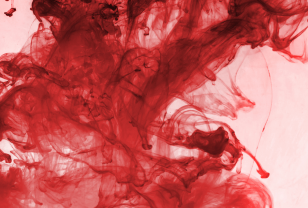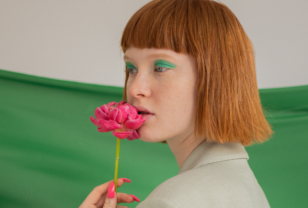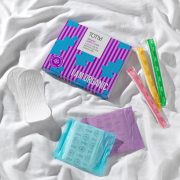Last week Endometriosis UK Trustee, Alice Smith launched a petition to get menstrual wellbeing on the school curriculum. Why is this important? We spoke to 17-year-old student Elise Godsall to dig into this topic.
What did you learn about periods in schools? Chances are it was mainly a very scientific overview followed up with a handout pack of pads and tampons. But this is being challenged this week by Alice Smith, a young ambassador for Endometriosis UK (who TOTM are proudly supporting in 2018!).
Alice has Endometriosis and is campaigning to get menstrual wellbeing on the curriculum. On the petition page, Alice states:
“It’s time to give periods a voice. It’s time for the menstrual cycle to be heard. It’s time for us to arm every girl and boy with the right language to address the menstrual cycle as a fundamental and healthy thing to discuss as part of our wellbeing as women and as a society.”
Learning MORE about menstrual wellness in schools
This call for change is important to not only fight back against period shame and taboos. But it’s also crucial to ensure we understand our bodies.
To explore this further a spoke to 17-year-old Fine Art student, Elise Godsall. Elise uses her artwork to challenge taboos and is passionate about addressing social and political issues. Here’s what Elise had to say:
Q: Firstly, tell us about yourself…
“I am a young Fine Art student. Through my artwork, I have been able to bring awareness and attention to things to do with the menstrual cycle, but also a women’s ‘stereotypical’ role in the world. I dedicated my project too challenging these ‘taboo’ subjects, and to try and disrupt people’s views on sanitary items, but ultimately their views on periods as a whole. From my personal experiences, it became evident to me that there was an uncomfortable nature to discussing one’s period, or a negative stigma behind it, which was something I could never understand.
I have created artwork surrounding issues on sanitary products, such as the Tampon Tax that has to be paid due to sanitary products being considered a ‘luxury’ item. I also touched on the fact that women and young girls all over the world cannot necessarily afford a period due to the expenses of sanitary items. I calculated how much time girls would miss off school on average, over the course of 6 years due to having their period – and found a shocking result. I calculated that a young girl would miss 504 days off school, 72 weeks, 16.57 months; which ultimately is 1 and a half years. Therefore, I made 504 sanitary towel prints, 72 plaster tampons and 16.57 wax tampons to get the message across to people. I aim to sell my artwork in order to give some of the money to charities which support causes such as this.”
Q: How old were you when you first had ‘the period talk’ in school?
“I was in Year 6, in Primary School. Meaning I was 10 or 11 around the time, I remember when we had this talk all boy students were asked to leave the room. The talk probably lasted 20 minutes at the most from what I can recall, and not a lot was covered at all.
The biological aspect of a menstrual cycle was spoken about after this, during Secondary school. This generally only informed you about what hormones are released during the cycle, and what each hormone does to the body. Anything I wanted to know after this I had to ask my mum, or my friends.”
Q: What topics were covered in the talk?
“From what I can remember, and from a leaflet I had been given, all that was discussed throughout the ‘period talk’ was what a tampon and pad are. How to wash your knickers and clothes if you ever leaked from your period, and to wash more regularly. The period discussion was practically a basic overview of what a period is; being that it lasts around a week, and you bleed from your vaginal area. In my opinion, I think this talk was so vague and brief. I could never have understood the full extent of what a period was, nor how to deal with it properly. Most topics were covered by a quick film that was played to us, which included an explanation of the vagina.”
Q: Did the talk cover menstrual conditions i.e. Endometriosis
“No menstrual conditions were ever discussed. I have never been educated on any menstrual conditions whatsoever, just like many other girls. As a matter of fact, I never knew what exactly Endometriosis was until I read the article previously posted on the TOTM blog and further researched into it myself. A condition such as Endometriosis is something quite serious. It affects approximately 1 in 10 women in their reproductive years, yet it is not spoken about during the talk. If young girls were aware of the symptoms of Endometriosis, or other menstrual conditions then there would be a much higher possibility of diagnosis’ being found a lot quicker.
I was never told what was ‘abnormal’ in a period, or normal to experience – it was such a basic discussion. I, as a 17-year-old girl, have never been educated on these issues. Which means I wouldn’t even be aware if there was a possibility I was suffering from them.”
Q: Did you feel the talk answered all your questions about periods and menstrual health?
“I feel as though, at the time, it answered all my questions because I was a girl who hadn’t started her period. I didn’t know what questions to even ask. But in hindsight, it didn’t cover half of the questions I’ve had since starting my period. I don’t feel as though menstrual health was spoke about, just ‘here is what a period is’. And ‘this is what you use for when you bleed’.”
Q: What topics did you think were missing when you look back now?
“Toxic Shock Syndrome, Endometriosis, Premenstrual Syndrome, Polycystic Ovary Syndrome.
That you can get blood clotting and horrible cramps or feel nauseous. About alternative sanitary items such as a menstrual cup. That your period can be irregular, especially when you first start and that you can bleed too much or be heavy. What any of this stuff could mean, or result in. Ways to deal with these things. That you can leak in public – and if that happens you should always feel comfortable to be able to tell your teacher (if you were still in school).
It’s a PRIME health topic. Yet your health and health conditions surrounding this aren’t commented on too much.”
Q: What are your thoughts on adding menstrual wellbeing to the curriculum?
“Menstrual wellbeing is certainly something that needs to be added to the curriculum and should be covered in much more depth. Without a doubt. I read somewhere that periods are NOT exclusive. We don’t choose to have one. It’s a vital part of life and something we experience monthly. I think it’s awful that menstrual wellbeing isn’t already on the curriculum. Girls should know what’s ‘normal’ and what’s not. I think the taboo behind periods needs to go, and this is just one step towards this. If it’s ‘normalised’ at an early age, eventually views on it being ‘disgusting’ will change. “
Q: Why do you think this is so important?
“To me, I think this is a very important issue. Young people go through a lot of changes when in school, both hormonal and physical changes. Menstrual wellbeing is briefly addressed in Year 6 – when you are around 10-11. It’s a topic that needs to be prioritised in schools. I think topics such as this should be discussed in more depth. The way schools handle the ‘period talk’ is rather awkward, and not usually spoke about on more than the one occasion. This ultimately conditions young girls, and boys to view a menstrual cycle as a taboo topic. This can cause many problems in the future as when these girls begin to start their period they feel ashamed to talk about it due to how it is handled. There is that unwritten rule to not speak about something like this.
This should be gender inclusive…
Not only that but when I had the talk about periods all the boys in my class were asked to leave the room. The discussion was only for girls. I think this is something that needs to change. It only further enforces this uncomfortable feeling for both genders – and leads to a lack of knowledge on both parts. If this was discussed between both boys and girls, there would be less ignorance and comments such as ‘OOO someone’s on their period’. There will be a mutual understanding of what a period is.
Furthermore, regarding physical health for females, this needs to be emphasised. Due to the embarrassment associated with a period, it could result in females feeling too uncomfortable to go to a doctor or seek help, meaning they could suffer really bad.”
Thanks so much to Elise for sharing her thoughts on this topic. You can follow Elise’s art here. If you’re keen to support Alice’s petition to get menstrual wellbeing on the curriculum, then you can find out more here. Got a comment or thought on this topic? Join in the conversation by commenting below or dropping us a message on TOTM socials – Twitter, Facebook and Instagram.





